7 occupations from the past that no longer exist today because progress has rendered them obsolete
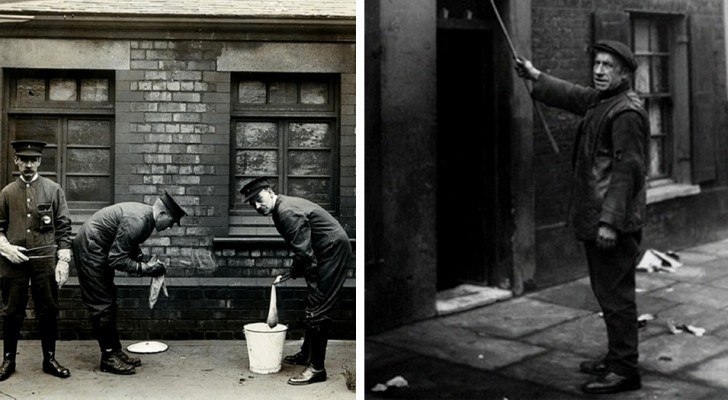
The world of work has always been in constant evolution and, like other fields, has been hit by technological and scientific progress over the years. A progress that has wreaked havoc on some of the most popular and bizarre occupations from previous centuries, leaving traces only in the old black and white photos that remain to bear witness to a time that no longer exists. On the other hand, it is likely that even the jobs we are most fond of today, with the advent of new technologies, may be lost in the coming years. If, today it is difficult to enter the world of work, yesterday it was perhaps even more so. In any case, it is useless to make comparisons of this type: every age has its particular difficulties and contradictions. In the last century, as well as today, we people came up with creative solutions to earn some money.
Here is a short list of some of the hottest jobs of the past (and also some of the most bizarre and dangerous!), which, by now, "have gone the way of the dinosaurs on Earth"!
1. Pin collectors at the bowling alley
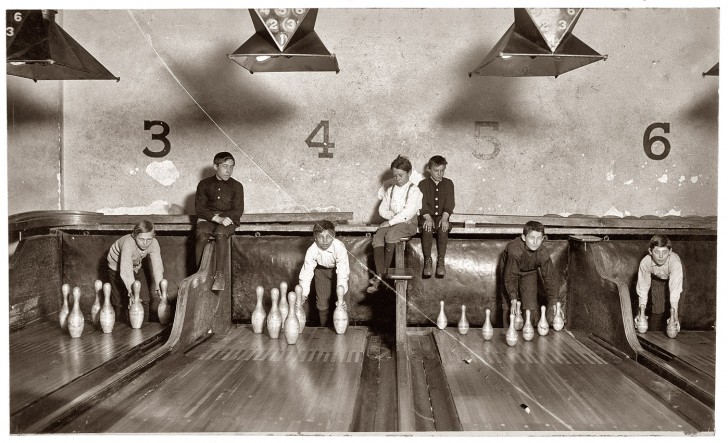
As early as the mid-19th century, work was being done on the development of a mechanical system that would solve the problem of pin positioning and, at the same time, of the need for human presence on the bowling lane. Naturally, with the development of technologiy it was possible to replace the children and young people who did this work at the bowling alley with an automated mechanical system that collected the pins and repositioned new ones. Nowadays there are integrated electronic systems that perform this task, integrated with the score board.
Another photo which documents the hard work of the "pin setter"
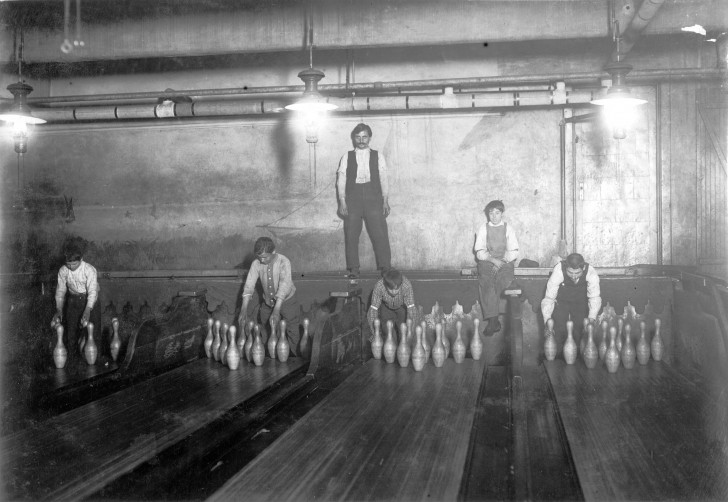
This photo is dated "April 1910" and shows some boys performing the work of pin setting at Subway Bowling Alleys, in the borough of Brooklyn in New York.
2. The "human alarm clock", or "knocker upper"
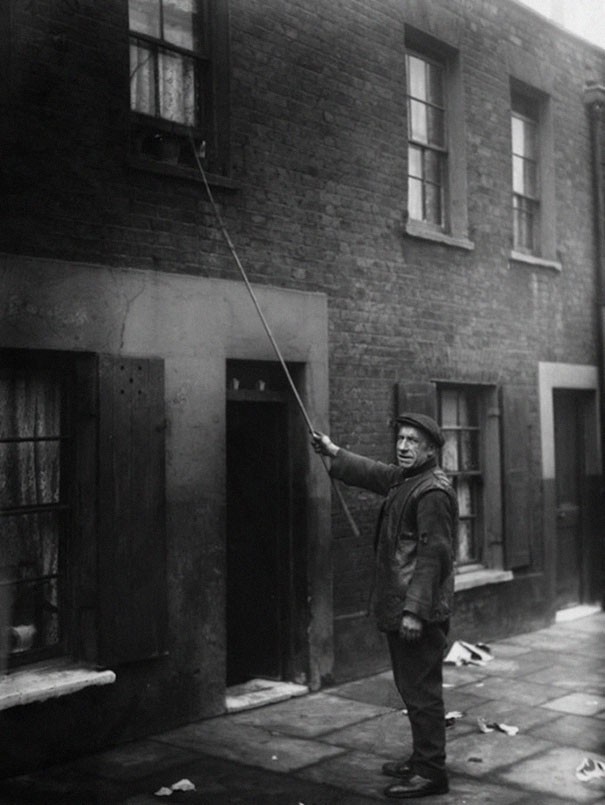
Do you have an alarm on your cell phone that you set every morning to be able to get out of bed on time? Well, before such technology had been invented, but men and women still had to wake up early to start the day and get to work, there were special workers who beat long sticks on the house windows to awaken the workers of the UK and Ireland. In reality, they could also use stones, clubs or blowguns, the important thing was to get the desired result, that is, that the workers had to wake up. Fortunately, alarm clocks became cheaper and more widely used!
The UK and IReland, before the 1920's.
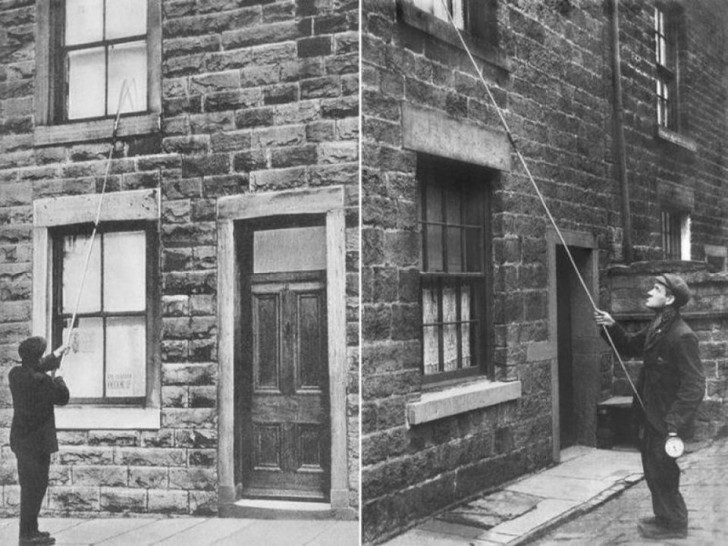
3. Rat hunter!

A job which wouldperhaps not be very sought after by most people who, notoriously, keep well away from this pestilent animal. Still, hunting rats in big cities was a real job!
More rodent control...
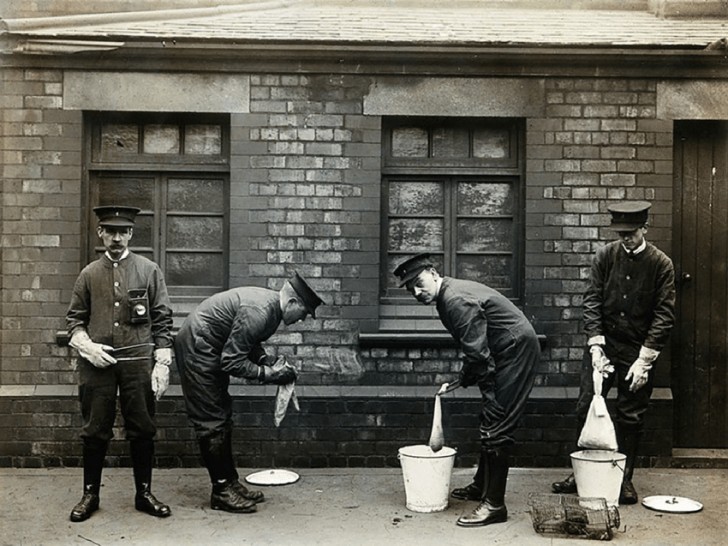
4. The lamplighter's trade
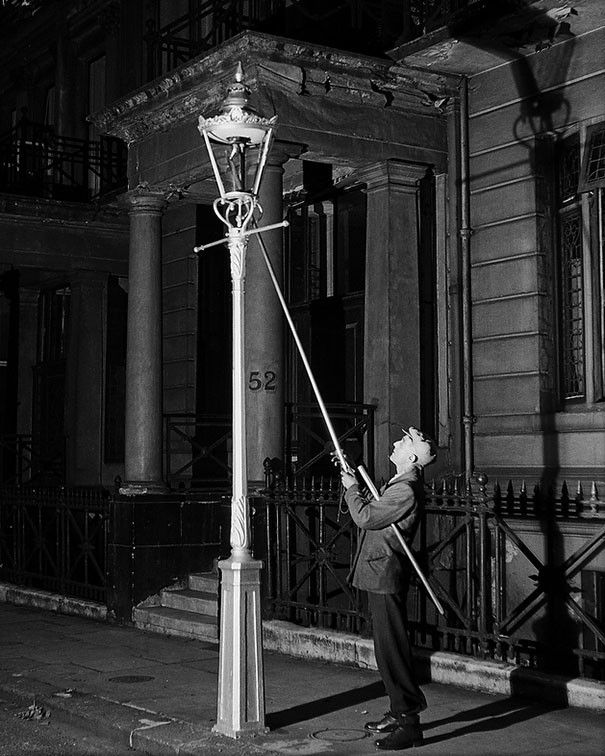
Before the introduction of electricity, there were people in charge of lighting the street lamps - a lighting that took manually place, per force. They could have been gas lamps or even candles.
5. The reader who entertained the workers in the factories
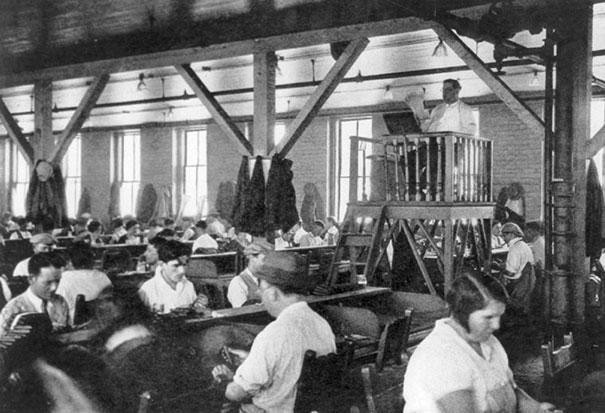
The "readers" were often hired directly by the workers who raised the money needed to afford some entertainment during working hours. Often, readers read material about workers' rights, trade unions and leftist ideas to workers.
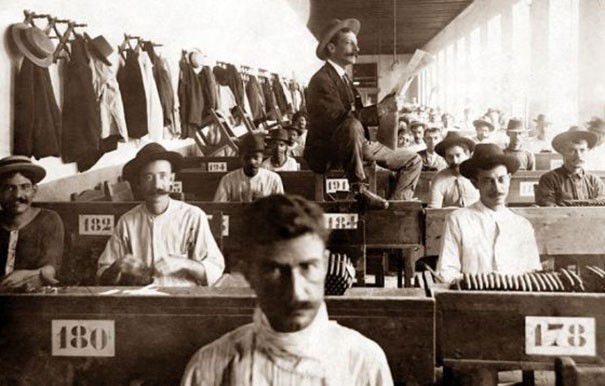
Another example of workers being entertained by a reader during working hours.
6. The "body snatchers" who stole for anatomists
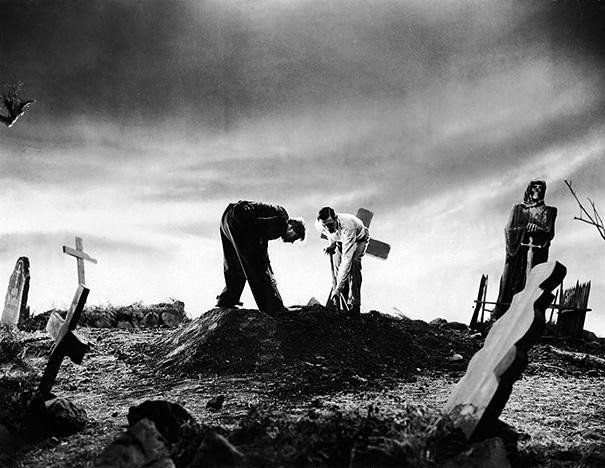
This will probably not even seem like a job, but an outrage against those who are no longer with us. In the 19th century, exhumers of corpses were hired directly by universities, especially for medical courses, as procuring bodies legally was very difficult.
7. Ice-cutters
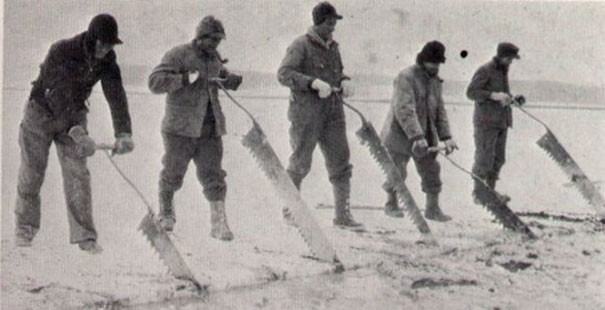
Nowadays it's child's play to keep food fresh, cooked or uncooked, in the fridge and be able to store it for several days, but before the advent of the refrigerator, the problem was real. How did they solve it? Thanks to the so-called ice cutters! These were people who specifically went to cut blocks of ice from frozen lakes and then transported them to the city. Hard work, but certainly profitable ... until they invented the refrigerator!
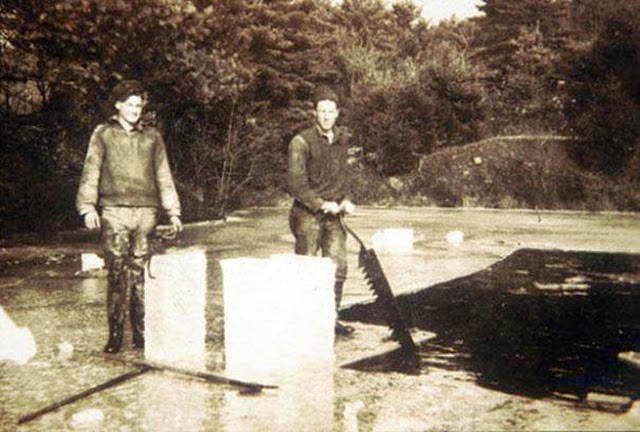
What can we say, at some point in their lives these people, or their successors, will surely have become unemployed, but unfortunately this is the price we pay for progress. What do you think, is it worth it?





